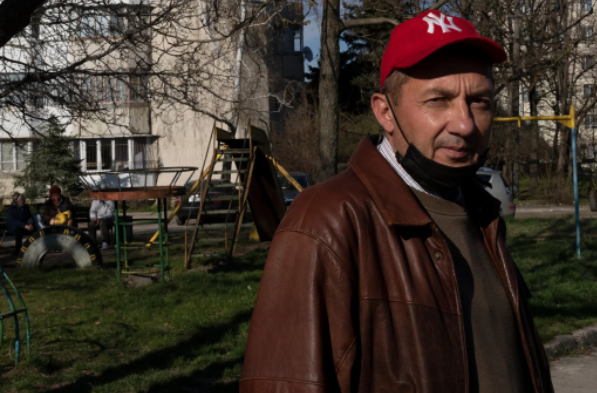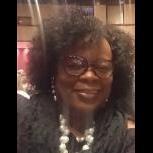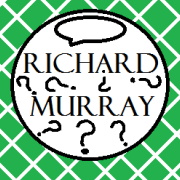-
Posts
4,188 -
Joined
-
Last visited
-
Days Won
121
richardmurray's Achievements
Single Status Update
See all updates by richardmurray
-
Et Tu War
My Thoughts To The Article BelowThe great Ali once asked, I paraphrase, why should I go fight vietkong for you when you my poser when I want a job, you my poser when I want rights, you my poser when I try to be happy.
I recall in a documentary on Public Broadcasting Station concerning the Vietnam war a man who fought for Vietnam against the proxy government set up by the USA in vietnam, that he was the only person in his building to return from going to the war.
What is the point?
Any government that has to force or ask people who live under it to fight for it proves that government is failed.
The reason why Black people had to be drafted is cause most Black people couldn't stand the USA and would never willingly take a bullet for a government that oppresses Black people.
To the article below, I have never lived in Ukraine or Russia. I know no one in Ukraine or Russia. The article below can be a complete lie.But, if the article below has truth.
It makes three things clear.
The Ukrainian people are kin to Russian People. They are not distant. These two peoples are in the same way like the Union side the Confederacy.
The Ukrainian government has forced Ukranian people, especially men: to deny themselves, to deny their personal relationships to Russia, to deny their right to choose.
A segment of the Ukranian plus Russian people in the USA have a combined agenda that they promote which is telling a lie about the realities of this war, which the USA government supports for global order reasonings.Some may suggest I am stating a civil war. I am not. No war is ever civil and that includes the war between the states. I am stating the russian-ukranian war is an intracommunal war, a war within one community. Sequentially, while the Russian sector is the agressor plus the Ukrainian is the subjected. Neither side is absent the other. It is the same thing when Hindus side Muslims fight in India. It is the same with the people of Hong Kong or Taiwan aside the People of Mainland china. It is the same with the people of north korea side south korea. One community can have striking parts and still be one community. The people of ireland are still british even though they bombed everywhere possible in belfast or england they could.
Now, why have I posted this in a Black communal online group. The question is how Black people see themselves under any government, but especially the USA. How many Black people if they had to choose will fight for the USA? I argue far less. Many Black people talk about enslaved forebears fighting to have the legal rights or communal equality to whites. But I argue, for each enslaved forebear that wanted equality to all was ten forebears who wanted to merely break the skull of someone not black.
When Black people speak of anger or violence being a problem in the Black community, I hope anyone reading this will ask themselves, how many Black people are happy? And if unhappiness is merely a potential reality, not a sign that the mind is unhealthy, then the solution to unhappiness isn't some pharmaceutical product or some talk with someone saying to another they are wrong, but an process that leads to what will make a Black person happy.Last question, when the war between ukraine side russia is over, will Ukraine have to give up the weapons they were given by various countries?

Photo description
Volodymyr Danuliv, a Ukrainian evacuee, at a center for asylum seekers and refugees in Chisinau, Moldova’s capital. He has relatives in the Russian Army and is determined not to join the fight for Ukraine.
Article
Ukraine’s Draft Dodgers Face Guilt, Shame and Reproach
April 10, 2022, 1:57 p.m. ETApril 10, 2022
April 10, 2022
Jeffrey Gettleman and Monika PronczukCHISINAU, Moldova – Vova Klever, a young, successful fashion photographer from Ukraine’s capital, Kyiv, did not see himself in this war.
“Violence is not my weapon,” he said.
So shortly after Russia invaded Ukraine in late February and Ukraine prohibited men of military age from leaving the country, Mr. Klever sneaked out to London.
His mistake, which would bring devastating consequences, was writing to a friend about it.
The friend and his wife then shared the contents of that conversation on social media. It sparked an online fight that went viral, and Ukrainians all over the internet exploded with anger and resentment.
“You are a walking dead person,” one Twitter message said. “I’m going to find you in any corner in the world.”
The notion of people — especially men — leaving war-torn Ukraine for safe and comfortable lives abroad has provoked a moral dilemma among Ukrainians that turns on one of the most elemental decisions humans can make: fight or flee.
Thousands of Ukrainian men of military age have left the country to avoid participating in the war, according to records from regional law enforcement officials and interviews with people inside and outside Ukraine. Smuggling rings in Moldova, and possibly other European countries, have been doing a brisk business. Some people have paid up to $15,000 for a secret night-time ride out of Ukraine, Moldovan officials said.
The draft dodgers are the vast exception. That makes it all the more complicated for them — morally, socially and practically. Ukrainian society has been mobilized for war against a much bigger enemy, and countless Ukrainians without military experience have volunteered for the fight. To maximize its forces, the Ukrainian government has taken the extreme step of prohibiting men 18 to 60 from leaving, with few exceptions.
All this has forced many Ukrainian men who don’t want to serve into taking illegal routes into Hungary, Moldova and Poland and other neighboring countries. Even among those convinced they fled for the right reasons, some said they felt guilty and ashamed.
“I don’t think I can be a good soldier right now in this war,” said a Ukrainian computer programmer named Volodymyr, who left shortly after the war began and did not want to disclose his last name, fearing repercussions for avoiding military service.
“Look at me,” Volodymyr said, as he sat in a pub in Warsaw drinking a beer. “I wear glasses. I am 46. I don’t look like a classic fighter, some Rambo who can fight Russian troops.”
He took another sip and stared into his glass.
“Yes, I am ashamed,” he said. “I ran away from this war, and it is probably my crime.”
Ukrainian politicians have threatened to put draft dodgers in prison and confiscate their homes. But within Ukrainian society, even as cities continue to be pummeled by Russian bombs, the sentiments are more divided.
A meme recently popped up with the refrain, “Do what you can, where you are.” It’s clearly meant to counter negative feelings toward those who left and assure them they can still contribute to the war effort. And Ukrainian women and children, the vast majority of the refugees, face little backlash.
But that’s not the case for young men, and this is what blew up on the young photographer.
In mid-March, Olga Lepina, a modeling agent, said Mr. Klever disclosed in a text message to her husband that he had paid $5,000 to be smuggled out of Ukraine, and from earlier conversations she knew he had wanted to go to London.
Ms. Lepina said she and Mr. Klever had been friends for years. She even went to his wedding. But as the war drew near, she said, Mr. Klever became intensely patriotic and anti-Russian, and said rude things to her husband, who is Russian. When she found out he had avoided service, she was so outraged that she posted on Instagram the comments Mr. Klever made insulting her husband, and said he had spent $5,000 to be smuggled out of Ukraine.
“For me, it was a hypocrisy to leave the country and pay money for this,” she explained, adding, “He needs to be responsible for his words.”
Mr. Klever, who is in his 20s, fell deeper into an online spat with Ms. Lepina. She and others said he had made insensitive comments about the town of Bucha, the site of major violence and the town she was from. (The comments were made before the atrocities in Bucha were revealed). Mr. Klever was then bombarded with death threats. Some Ukrainians also resented that he used his wealth to get out and called it “cheating.”
Responding to emailed questions, Mr. Klever did not deny skipping out on his service and said that he had poor eyesight and had “been through a lot lately."
“You can’t even imagine the hatred,” he said.
Mr. Klever gave conflicting accounts of how exactly he exited the country and declined to provide details. But for many other Ukrainian men, Moldova has become the favorite trap door.
Moldova shares a nearly 800-mile border with western Ukraine. And unlike Hungary, Poland, Romania and Slovakia, Moldova is not part of the European Union, which means it has significantly fewer resources to control its frontiers. It is one of Europe’s poorest countries and has been a hub of human trafficking and organized crime.
Within days of the war erupting, Moldovan officials said, Moldovan gangs posted advertisements on Telegram, a popular messaging service in Eastern Europe, offering to arrange cars, even minibuses, to spirit out draft dodgers.
Law enforcement officials said the typical method was for the smugglers and the Ukrainians to select a rendezvous point along Moldova’s “green border,” the term used for the unfenced border areas, and meet late at night.
On a recent night, a squad of Moldovan border guards trudged across a flat, endless wheat field, their boots sinking in the mud, looking for draft dodgers. There was no border post on the horizon, just the faint lights of a Ukrainian village and the sounds of dogs barking in the darkness.
Out here, one can just walk into and out of Ukraine.
Moldovan officials said that since late February they had broken up more than 20 smuggling rings, including a few well-known criminal enterprises. In turn, they have apprehended 1,091 people crossing the border illegally. Officials said all were Ukrainian men.
Once caught, these men have a choice. If they don’t want to be sent back, they can apply for asylum in Moldova, and cannot be deported.
But if they do not apply for asylum, they can be turned over to the Ukrainian authorities, who, Moldovan officials said, have been pressuring them to send the men back. The vast majority of those who entered illegally, around 1,000, have sought asylum, and fewer than 100 have been returned, Moldovan officials said. Two thousand other Ukrainian men who have entered Moldova legally have also applied for asylum.
Volodymyr Danuliv is one of them. He refuses to fight in the war, though it’s not the prospect of dying that worries him, he said. It is the killing.
“I can’t shoot Russian people,” said Mr. Danuliv, 50.
He explained that his siblings had married Russians and that two of his nephews were serving in the Russian Army — in Ukraine.
“How can I fight in this war?” he asked. “I might kill my own family.”
Myroslav Hai, an official with Ukraine’s military reserve, conceded, “There are people who evade mobilization, but their share in comparison with volunteers is not so large.” Other Ukrainian officials said men ideologically or religiously opposed to war could serve in another way, for example as cooks or drivers.
But none of the more than a dozen men interviewed for this article seemed interested. Mr. Danuliv, a businessman from western Ukraine, said he wanted no part in the war. When asked if he feared being ostracized or shamed, he shook his head.
“I didn’t kill anyone. That’s what’s important to me,” he said. “I don’t care what people say.”
What happens when the war ends? How much resentment will surface toward those who left? These are questions Ukrainians, men and women, are beginning to ask.
When Ms. Lepina shamed Mr. Klever, she was no longer in Ukraine herself. She had left, too, for France, with her husband. Every day, she said, she wrestles with guilt.
“People are suffering in Ukraine, and I want to be there to help them, to support them,” she said. “But at the same time I’m safe and I want to be here.”
“It’s a very ambiguous, complicated feeling,” she said.
And she knows she will be judged.
“Of course there will be some people who divide Ukrainian nationals between those who left and those who stayed,” she said. “I am ready for that.”
Siergiej Greczuszkin contributed reporting from Warsaw, and Daria Mychkovska from Przemysl, Poland.
Correction: April 10, 2022
An earlier version of this article referred incompletely to the online dispute between Vova Klever and Olga Lupina. In addition to writing a social media post describing Mr. Klever’s avoidance of military service in Ukraine, Ms. Lupina also posted comments she considered insensitive that he made about her husband’s Russian heritage and about Bucha, her hometown.Article Link
https://www.nytimes.com/2022/04/10/world/asia/ukraine-draft-dodgers.html
-

COMMENTS
@ProfD the following link will take you to an article where you will note many ukranians dissenting. If anything your prose prove that black people take too much stock in how white owned media presents us. Black people in the usa don't own white owned media but live in a white country.
https://aalbc.com/tc/profile/6477-richardmurray/?status=1883&type=status
@Troy I will be blunt, many a black person I know older than you or me by distance said the same thing about their time when our age, referencing a book written by a black person. .... What do you want Troy for the Black community in the USA? Do you want Black owned book publishing firms to dominate the market? what goal do you want for the black community in the USA?
@ProfDI want to amend your statement, not just russian counterparts their russian kin/family/clan. That article's primary point , in my view, is the lack of comprehension or media admittance on the relationship between ukraine side russia.
I bet most ukranians have russian ancestry. You think so professor? I think so. This russian/ukranian war is a intra-clan war. That is being sold as two separate peoples, by the usa goverment who has an agenda to offer other news than the fiscal downturns or virus and wants to push the european union into something.
of course, most people from the USA who didn't fight in the vietnam war,living in canada or somewhere outside the usa, who are alive still feel a similar guilt or shame to ukranians who have not fought in the russian ukranian war. Same to whites who didn't fight in the war between the states, based on what was spoken through transcription in my memory. Humanity loves to make men feel bad when they don't fight in wars, as if wars are ever as straight or simple as advertised. They never are.
In my view, the russian ukranian was is inevitable or necessary. I will defend my position professor, with the following, i wonder how my defense holds up.
1st. the russian government was already installed in two regions in ukraine that the current ukranian government never officially accepted. The eastern border provinces of ukraine that border russia, I think called the donks. And Crimea was under russian suzerainty, like guantanemo is to the usa. So, the russian government saw a need to control crimea which is the biggest seaport in the region and support plus liberate the donks, which is the pro russian , east section of ukraine. Based on the western kiev based ukranina reply to current events, russia acted in fair necessity.
2nd. The ukranian goverment before the current was pro russian and the usa side other western european countries, manipulated things in ukraine to overtunr said government. Thus, the usa meddled in ukraine to place a pro usa government. But the pro usa government in ukraine didn't seem to realize that all their neighbors had a military alliance but them. bellarus has a military alliance with russia, poland and west of ukraine are all in nato for the most part. so...the ukrainian government foolishly thought it could evade being a proper neutral country while not joining a military alliance. they performed a dangerous dance between two powers and any time a government does that they make war in their land inevitable.
@Stefan for the record, the black party of governance in the usa isn't my agenda. I want to see it, I advocate for it, but on a simple grounds, it has never been done.
Black people starting business, supporting black businesses, going to college, having educational pushes gardless of college in the usa have been done multiple times ias collective pushes in the black community in the usa. But the black community in the usa has never , ever , had a black party of governance. I advocate doing new things when you have tried the same old things multiple times.
Black people i know in south africa, tell me about, voting, and I inform them. over 95% of black people voted for mandela and company, and in the first eight years, over 90% of black people participated in voting. The fact that the percentage of black vote is lower now can't be blamed on black voters when in my lifetime black people voted over 90% in south africa. I tell them, do new things, forget about black parties of governance, ala ANC forget them.
To the usa, I have never been a member of the donkeys or the elephants and I have no intention of joining a black party of governance in the usa , but I know it is something that hasn't been done and so instead of hearing ten more years of black people complain about the party of andrew jackson or abaraham lincoln, i advocate those complainers making a new party.
You know the forums in this community, you read the comments, this forum is full of black folk, at the least people I think are black, complaining about the two parties, so leave both of them and start a new one.
To your point about soliciting information from others , fair enough
@Troy for men of the sun, that may be the hardest achievement for our rocks to make
as you said, the individualism has to go... the day most black individuals have an idea of where they want the black community to go, will be the day , communalism is stronger in the black community
@ProfD is power for nothing? is the path made from power unnecessary? I argue the history of the USA , at the least the white european people in it, proves using violence/war/getting the death of millions/being barbaric/having greed is for everything, not for nothing. Without said negativities the white european community in the usa has little to nothing of what they have, thus said negativities are the most necessary to those who have the most. If anything, the questions are, what value is peace? is peace for nothing? Is peace unnecessary? Are native americans living peacefully in the USA necessary to native american betterment , growth? What has living peacefully brought the native american?
I think whites know history very well, and they know that those who are in control have the forebears who acted negatively without shame, for they comprehended their descendants will be better off inheriting more, by any means, not less.
-

The ‘messy middle’
Ian Prasad Philbrick, The New York Times
Published: 20 Apr 2022 12:40 AM BdST Updated: 20 Apr 2022 12:40 AM BdSTIf you live in most any Western country, your government’s support for Ukraine, including sending weapons and imposing sanctions on Russia, can give the impression of a united global response to President Vladimir Putin’s invasion.
But that isn’t the case. Most of the world’s 195 countries have not shipped aid to Ukraine or joined in sanctions. A handful have actively supported Russia. Far more occupy the “messy middle,” as Carisa Nietsche of the Centre for a New American Security calls it, taking neither Ukraine’s nor Russia’s side.
“We live in a bubble, here in the US and Europe, where we think the very stark moral and geopolitical stakes, and framework of what we’re seeing unfolding, is a universal cause,” Barry Pavel, a senior vice president at the Atlantic Council, told me. “Actually, most of the governments of the world are not with us.”
India and Israel are prominent democracies that ally with the United States on many issues, particularly security. But they rely on Russia for security as well and have avoided arming Ukraine or imposing sanctions on Moscow. “In both cases, the key factor isn’t ideology but national interests,” says my New York Times colleague Max Fisher, who has written about Russia’s invasion.
India is the world’s largest buyer of Russian weapons, seeking to protect itself from Pakistan and China. India joined 34 other countries in abstaining from a United Nations vote that condemned Russia’s invasion of Ukraine. And India appears to be rebuffing Western pleas to take a harder line.
Israel coordinates with Russia on Iran, its chief adversary, and in neighboring Syria (with which Russia has a strong relationship). Russian-speaking émigrés from the former Soviet Union also make up a sizable chunk of the Israeli electorate. Israel’s prime minister has avoided directly criticising Putin, and although its government has mediated between Ukraine and Russia, little has come out of the effort.
Several Latin American, Southeast Asian and African countries have made similar choices. Bolivia, Vietnam and almost half of Africa’s 54 countries declined to support the UN resolution condemning Russia. Some rely on Russian military assistance, said Bruce Jones, a senior fellow at the Brookings Institution. Others don’t want to risk jeopardising trade relations with China, which has parroted Russian propaganda about the war.
Those countries “might be more accurately described as disinterested,” Fisher says, unwilling to risk their security or economies “for the sake of a struggle that they see as mostly irrelevant.”
Some countries, citing the West’s history of imperialism and past failures to respect human rights, have justified opposing its response to Ukraine. South Africa’s president blamed NATO for Russia’s invasion, and its UN ambassador criticized the US invasion of Iraq during a debate last month about Ukraine’s humanitarian crisis.
Other countries, including some that voted to condemn Russia’s invasion, accuse the West of acting counterproductively. Brazil’s UN ambassador has suggested that arming Ukraine and imposing sanctions on Russia risk escalating the war.
“There’s nothing intellectually incoherent between viewing Russia’s actions as outrageous and not necessarily fully siding with the West’s reaction to it,” Jones told me.
Autocratic leaders — including in the United Arab Emirates, Saudi Arabia and Nicaragua — may also feel threatened by Ukraine’s resistance and the West’s framing of the invasion as a struggle between democracy and authoritarianism, experts said. “They’re concerned that this could inspire opposition movements in their own countries,” Nietsche said.
China, with all its economic and military might, has seen the war as a chance to enhance its own geopolitical standing as a counterweight to the United States while still maintaining ties to Russia. The countries recently issued a joint statement proclaiming a friendship with “no limits.” But China has struggled with the delicate balancing act of honoring that commitment without fully endorsing Russia’s invasion: Beijing has denounced Western sanctions but has not appeared to have given Russia weapons or economic aid.
“China’s support for Russia, while very important, is also carefully hedged and measured,” Fisher says.
Four countries — North Korea, Eritrea, Syria and Belarus — outright voted with Russia against the UN resolution condemning the invasion of Ukraine. Belarus is a former Soviet state whose autocratic leader asked Putin to help suppress protests in 2020 and allowed Russia to launch part of its invasion from within Belarus.
Russia intervened in Syria’s civil war on behalf of the Moscow-aligned government there, and Syria is sending fighters who may aid Russian forces in Ukraine.
It’s not unusual for countries to avoid picking sides on big global issues. Several stayed neutral during World War II; dozens sought to remain free of both United States and Soviet influence during the Cold War.
But if the war in Ukraine drags on, Jones said, neutral countries could come under stronger international pressure to condemn Moscow. And for countries with close ties to Russia, even neutrality can be an act of courage.
-







.thumb.jpg.ed52910791d00308abb8c218695bec88.jpg)


